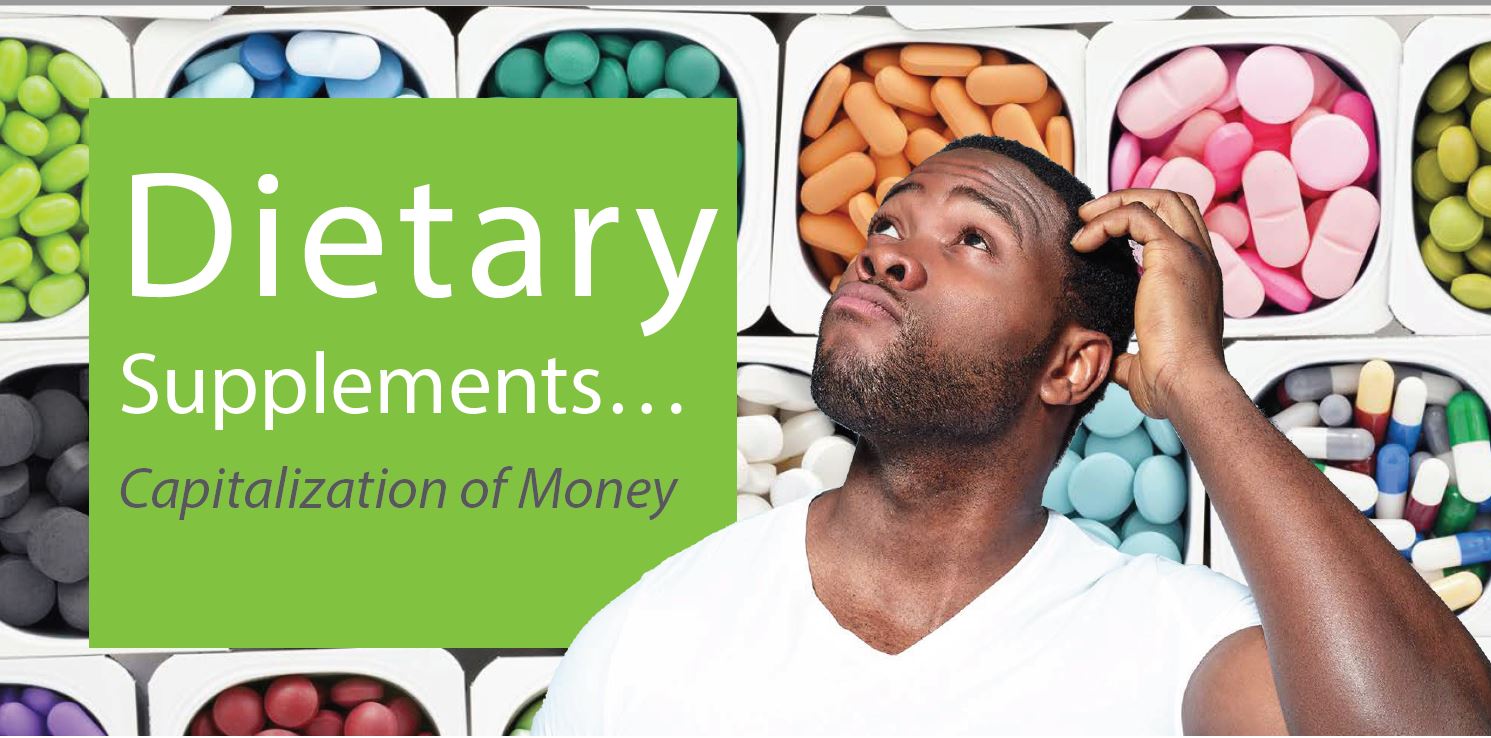Dietary Supplements
Many persons across the world start each day with a plethora of dietary supplements that they believe is key to their pursuit of eternal life and wellness. In fact, Americans now spend more than $30 billion per year on the little pills and tonics that they believe are a magical solution to all their health issues and concerns. Is the answer to our well-being really inside a bottle? Or are we just wasting money and fooling ourselves that dietary supplements can undo the damage caused by all the unhealthy food that we we put into our bodies?
Currently, there is no scientific evidence specifically addressing this, however, admittedly, there are specific supplements that are actually necessary for certain situations for example, folic acid for women who are trying to conceive and who are already pregnant. Let’s weigh the pros and cons, using this short checklist of general information about dietary supplements.
A HEALTHY DIET SHOULD BE ALL THE GOODNESS YOU NEED.
No one is 100% healthy all of the time. “Everything in moderation” is what we tell ourselves as we indulge in some sweeties or sugary pastries. However, a healthy, balanced
diet with plenty of fresh air and exercise should remove any need for supplements, especially in the Caribbean where we are blessed with an abundance of locally-grown fruits and vegetables.
SUPPLEMENTS MAY BE USEFUL SOMETIMES.
Persons with certain health conditions can actually benefit from dietary supplements, as long as they seek professional advice and don’t self-medicate. (Admit it, we’ve all used Google to diagnose our symptoms and wasted money on needless remedies and potions in search of a ‘cure’.) Persons with an iron deficiency can take an iron supplement; women hoping to get pregnant or who are pregnant need folic acid and a number of other vitamins; vitamin B12 is essential for vegans and for older adults with low B12 levels; and vitamin D and calcium are crucial for persons with osteoporosis or who are dairy or lactose intolerance. Yes, all these vitamins and minerals are found in food, but sometimes we need a boost to reach the necessary levels. Be extremely careful never to overdose.
TOO MANY SUPPLEMENTS CAN DO MORE HARM THAN GOOD.
Just like conventional medicines prescribed by your doctor, you can overdose on dietary supplements which causes toxicity. If you have an underlying health condition, a supplement you’ve started taking could exacerbate the symptoms. For example, large doses of antioxidants such as beta-carotene and vitamin E can be dangerous. According
to experts, fat-soluble vitamins, A and D in particular, have greater potential to cause toxicity than water-soluble ones like Vitamin C. Also, there are supplements that can damage and alter the effectiveness of your regular medication. So beware of the warning labels!
THE CLUE IS IN THE NAME.
Some supplements are hailed as the answer to all your health and wellness needs, but don’t be sucked in by the clever marketing. They are NOT drugs, they are ‘supplements’ and therefore if you have a serious health condition, you should not substitute these little pills and potions for treatment. The U.S. Food and Drug Administration (the agency which oversees the supplement industry) has stressed supplements are “not intended to treat, diagnose, mitigate, prevent or cure diseases”.
DIETARY SUPPLEMENTS AND CANCER.
There is evidence to show that people who take more dietary supplements than needed, tend to have a higher risk of developing cancer. Some studies have shown that some
high-dose dietary supplements (meaning supplements that provide far more than the daily recommended intakes of micronutrients) increase cancer risk.


